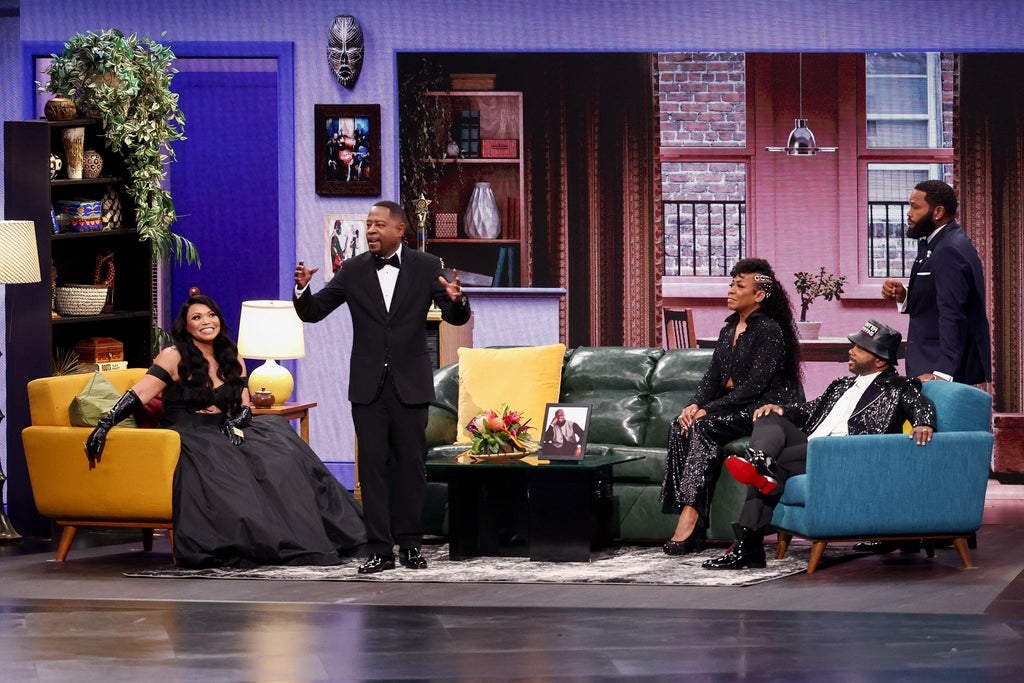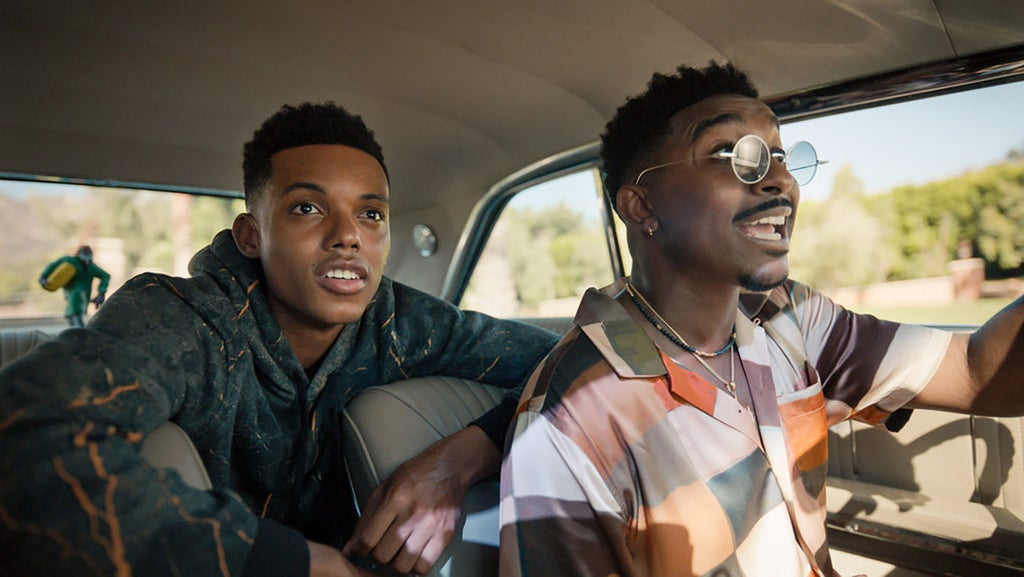
It’s clear that Hollywood studios are obsessed with rebooting classic TV shows. Unfortunately for viewers, there are no signs of these remakes going away any time soon. Last week, it was announced that a Martin prequel is in the works. According to Deadline, the prequel is set to be an hour-long drama series centered on a young Martin Payne navigating the obstacles of transitioning into adulthood. The original sitcom was a hit in the ‘90s and has stayed in the hearts of fans for more than three decades. The show’s long-lasting impact led to a cast reunion at the Emmys in January. While the reunion was one of the highlights of the award show, it didn’t need to go any further than that. Yet, that heartwarming moment opened the door for a permanent return that no one asked for. Reboots aren’t worth the risk of ruining the fan nostalgia of a classic show. But now that revamping old shows is more popular than ever, at what point will the TV industry decide that enough is enough?

Hollywood executives know that nostalgia sells. However, they need to realize that reimagining existing storylines is actually riskier than taking a chance on a new project. Disrupting a film or television show’s legacy is what’s at stake, and yet, Hollywood decision-makers seem to ignore this when greenlighting a reboot. The 1970s sitcom Good Times is a recent example of how the legacy of a pioneering show for Black culture turned sour after its animated reboot missed the mark with fans of the original comedy.
Good Times airing was a prominent moment for Black representation in television when it debuted on CBS in 1974. The show is 50 years old so of course some aspects don’t hold up, but along with making history as the first sitcom to display a two-parent Black household, it was one of the first moments in primetime television that the portrayal of a Black family strayed away from stereotypical storylines. Viewers found comfort in the show because of the realistic depictions of a working-class family overcoming their everyday challenges. The show earned immense praise for its ability to sustain the joy and perseverance of its characters while simultaneously confronting uncomfortable topics like poverty, discrimination, unemployment, and more.
Fast forward 50 years and one reboot later, the show became a hot topic for all the wrong reasons. After Netflix released the trailer for the Good Times: Black Again reboot in March, fans of the original sitcom flooded social media to express their frustrations. Online users claimed the trailer was offensive, degrading, and disrespectful not only to the original show but also to the Black community as a whole.
Now that revamping old shows is more popular than ever, at what point will the TV industry decide that enough is enough?
giana levy
Even the original Good Times cast members John Amos and BernNadette Stanis weighed in on the controversy. Stanis, who had a small role in the reboot, told The Hollywood Reporter she wasn’t aware of the project’s direction. “I did a little voice for them, but I did not know it was going to be the way it is,” Stanis said. “I thought it was going to be different. It’s just a little [voice acting] here and there. But I think that they did that because they knew what their show was going to be like. So I guess they figured, if you put us in there, it wouldn’t look so bad or whatever.” The nearly three-minute trailer was enough to have audiences worried about the show’s reputation once the reboot was released. The criticisms continued and negative reactions intensified after the 10-episode series premiered in April. Although the showrunner and other actors defended the animation, it wasn’t enough to convince viewers to keep an open mind.
There are, however, cases where a reimagination of a beloved show exceeds viewers’ expectations. Bel-Air is one of the rare exceptions. The Peacock original took a stab at reviving the 1990 sitcom The Fresh Prince of Bel-Air and earned the stamp of approval from fans and new audiences.
Dare I say it, #BelAir may have beaten the reboot curse.
— IAMNJERA (@IAMNJERA) March 11, 2022
As it heads into its third season in August, Bel-Air is the exception when it comes to reviving beloved shows. Bel-Air stands out because of its different spin on modernizing the characters and storylines that feel relevant to current events and culture. Instead of attempting to build on its predecessor, it is clear that the series desires to differentiate itself from the original and stand on its own. There are references that respect aspects of the 90s sitcom, but the distinctions are also evident and help separate it from the original comedy. The most significant differences are the character dynamics. Unlike the original Hilary Banks, who is portrayed as an airhead, the current character (played by Coco Jones) is an intelligent and ambitious social media influencer with entrepreneurial pursuits. The upbringing of Will’s character (played by Jabari Banks) is also explored deeper in the reimagined version. It showcases the complexities of him navigating having to leave his old life behind and enter a more privileged one.

The changes in the show’s format are also contributing factors to its success. Bel-Air is a one-hour drama series instead of a 20-minute comedy. The show’s duration, alongside its genre shift, makes it possible for the series to tackle serious social topics (sexuality, mental health, and drug abuse, to name a few) in a way that its predecessor couldn’t fit into its small window of airtime. The creators of Bel-Air discovered a way to honor the original series, carve its own lane, and generate success in the process. But, when compared to other instances, the victory of Bel-Air is an outlier. Because there is a slim chance for revivals and reboots to achieve success, it calls into question if nostalgia (or a quick cash grab) is worth potentially damaging the reputation of a legacy show. Since the Martin prequel is billed as a drama, it seems like they want to piggyback off of Bel-Air’s success and try the same formula. But lightning rarely strikes twice, and Bel-Air already perfected the silly comedy to serious update pipeline. If Martin fails at doing the same, it will be ridiculed for being an unnecessary update and for copying Bel-Air. No one needs this.
Hollywood studios prioritizing nostalgia over creativity has created this endless loop of recycling past shows. Quite frankly, viewers (including myself) have had enough. The lack of originality is lowering industry standards and, most importantly, withholding opportunities for fresh ideas and diverse stories from established or emerging creatives. While funding — or the lack thereof — is to blame for the ongoing cycle, viewers have proven that with great risk comes great reward.
Quinta Brunson is a prime example. Abbott Elementary has become a critically acclaimed sitcom that has earned multiple awards (including dominating the 2024 Emmy noms) and immense recognition for its ability to resonate with audiences. Cord Jefferson became an Oscar winner for his film American Fiction as a first-time director. While accepting his award, Jefferson implored Hollywood executives to take more risks on original ideas. “I understand that this is a risk-averse industry, but $200 million movies are also a risk,” Jefferson said during his speech. “But you take the risk anyway. Instead of making one $200 million movie, make 20 $10 million movies or 50 $4 million movies.”
Reboots are unwanted and unneeded when so many untold stories deserve an opportunity to be amplified instead. Leave Martin, and all the other ‘90s shows we love, alone.
giana levy
Taking the risk is just half the battle. Greenlighting original projects is the first step, but there is also a need to give them more time to reach their full potential before deciding to pull the plug. The ever-changing TV landscape, where budgets are tighter and DEI initiatives are dissolving, directly impacts Black shows and has resulted in many cancellations. All American: Homecoming, Rap Sh!t, South Side, Swagger, Legendary, Love Life, A Black Lady Sketch Show, Sweet Life: Los Angeles, and Grand Crew are just a few of the recent Black shows to be canceled.. Despite having growing fanbases, the list of canceled Black shows continues at an alarming rate. For Black audiences, the message is clear: diverse and original storytelling is not a priority. Several actors are now taking matters into their own hands by establishing production companies to create more opportunities for creatives. Issa Rae, Yara Shahidi, Marsai Martin, Storm Reid, and Lena Waithe are a few of the entertainers stepping in where Hollywood continues to fall short.
Rebooting classic shows that already have an established fanbase is not worth the risk of potentially harming their sacredness. Although reboots have the potential to expand existing storylines or develop new ones, the outcome often results in disappointment. The original Martin is still funny as hell (shout out to MVPs Tisha Campbell and Tichina Arnold) and it’s fine to revisit it with fondness without trying to capitalize off of our affection for it. Ultimately, reboots are unwanted and unneeded when so many untold stories deserve an opportunity to be amplified instead. Leave Martin, and all the other ‘90s shows we love, alone.
Like what you see? How about some more R29 goodness, right here?
'Good Times' Isn’t That Bad — But It Isn't Good
Hating Carlton On "Bel-Air" Is The Point
Hot Uncle Phil is Bel-Air’s Secret Ingredient







